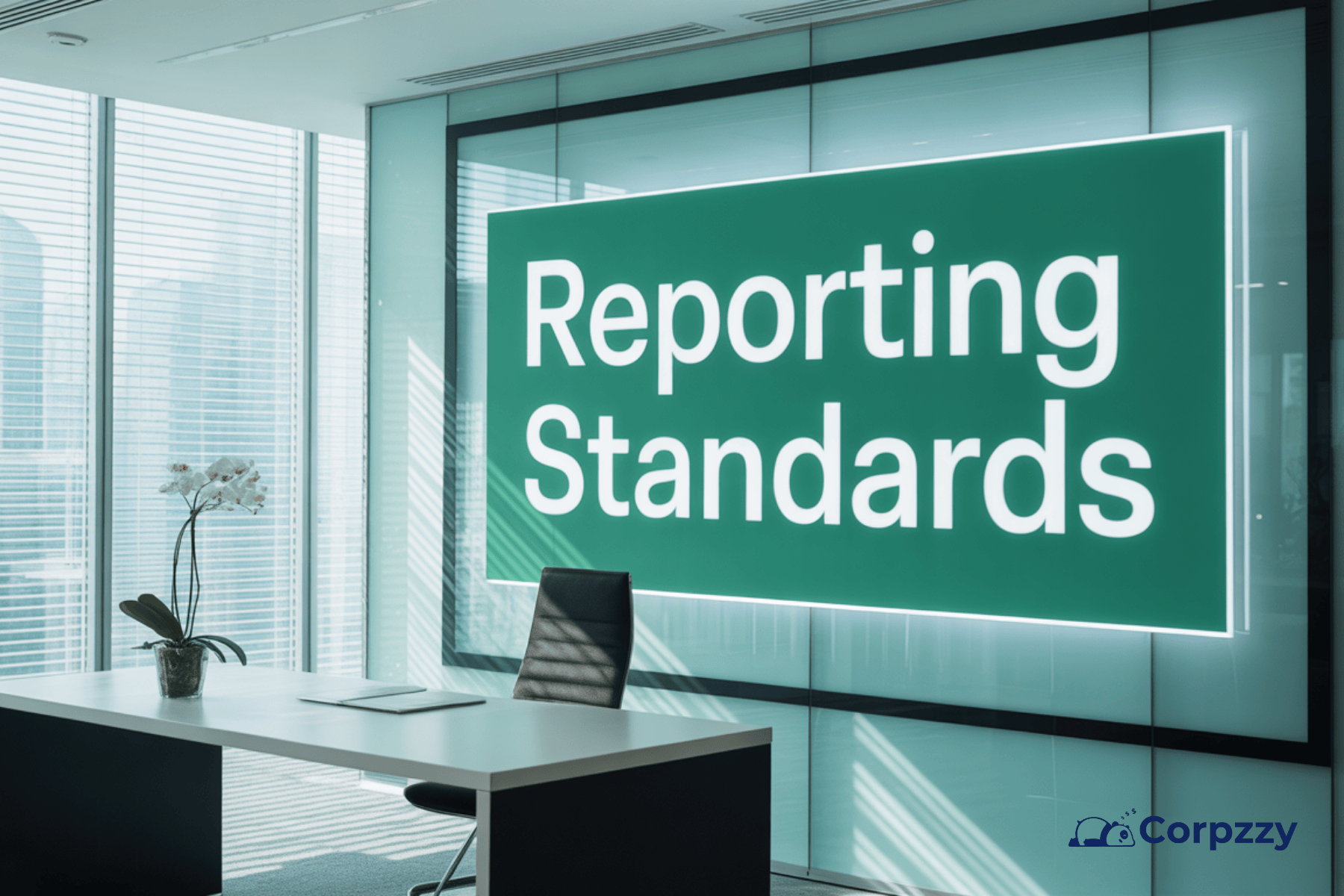Singapore Companies Business Reporting with ACRA
Singapore Companies Business Reporting with ACRA
Outline
- Why Accurate Business Reporting Matters in Singapore
- Key Takeaways
- Key Corporate Compliance Deadlines
- AGM Rules and Exemption Triggers
- Filing Your Annual Return
- Statutory Financial Statements and XBRL Requirements
- Audit Exemption Criteria
- Corporate Tax Filing Requirements
- Common Mistakes to Avoid
- Stay Compliant, Stay Confident
- Questions? We Have Answers

Why Accurate Business Reporting Matters in Singapore
In Singapore, business reporting is a legal obligation under the Companies Act. All companies must submit accurate, timely reports to the Accounting and Corporate Regulatory Authority (ACRA) and the Inland Revenue Authority of Singapore (IRAS). These submissions support financial transparency, legal compliance, and tax accountability.
Failure to comply can result in:
- Penalties and late fees (e.g. S$300 or more from ACRA)
- Loss of good standing with ACRA
- Difficulties renewing work passes for foreign directors
- Damage to business reputation and trust with banks, clients, or investors
For foreign-owned companies, maintaining compliance is especially important as MOM may revoke Employment Passes if directors oversee non-compliant businesses.
Key Takeaways
- All Singapore-incorporated companies must meet strict reporting obligations with ACRA and IRAS to remain compliant.
- Proper business reporting includes filing annual returns, holding AGMs, preparing financial statements, and submitting corporate tax on time.
- Companies may qualify for audit exemption under the “small company” criteria but must still maintain accurate records.
- XBRL filing is mandatory for insolvent companies or those with corporate shareholders.
- Non-compliance can lead to penalties, reputational damage, or even Employment Pass revocation for foreign directors.
Key Corporate Compliance Deadlines
Singapore companies must follow a specific post-incorporation timeline. Below is a typical reporting schedule:
| Compliance Task | Deadline from Incorporation | Remarks |
|---|---|---|
| Appoint Company Secretary | Within 6 months | Mandatory under Section 171 of Companies Act |
| Appoint Auditor (if not exempt) | Within 3 months | Required unless company qualifies as a small company |
| Determine Financial Year End | Upon incorporation | Common FYE is 31 December |
| Hold AGM | Within 6 months of FYE (or 18 months for new cos) | Must be held annually unless exempt |
| File Annual Return (AR) | Within 30 days of AGM | File via ACRA’s BizFile+ portal |
| File Estimated Chargeable Income | Within 3 months of FYE | File via IRAS’ MyTax Portal |
| File Corporate Tax (Form C/C-S) | By 30 November annually | Applies to all companies except dormant ones with waiver |
AGM Rules and Exemption Triggers
An Annual General Meeting (AGM) is required unless the company has elected to dispense with it via resolution.
Key AGM Requirements
- First AGM: Within 18 months from incorporation (exempted for private companies with unanimous resolution)
- Subsequent AGMs: Once every calendar year; no more than 15 months apart
- AGM documents to circulate:
- Financial statements
- Director’s report
- Auditor’s report (if applicable)
- Resolutions for shareholder approval
Audit Triggers
Companies must prepare audited accounts if they meet any of the following:
- Have more than 20 shareholders
- Have a corporate shareholder
- Annual revenue exceeds S$10 million
Filing Your Annual Return
An Annual Return (AR) provides ACRA with updated corporate information. It must be filed within 30 days after the AGM.
Information required for AR filing:
- Company registration number
- Financial year-end
- Company officers: directors, secretary, auditors
- Paid-up share capital and shareholding changes
- Principal business activities (SSIC code)
- Confirmation of AGM date or exemption
- Financial statements (uploaded if required)
Tips for Accurate Filing:
- Ensure BizFile+ account is up to date
- Declare correct shareholding status (especially after fundraising)
- Include XBRL version of financial statements if required
Statutory Financial Statements and XBRL Requirements
In Singapore, certain companies are required to file their financial statements in XBRL (eXtensible Business Reporting Language) format as part of their annual return submission to ACRA. This requirement typically applies to companies that are either insolvent—meaning their total liabilities exceed their total assets—or those that have at least one corporate shareholder during the financial year.
The financial statements that must be submitted include the Balance Sheet, Profit and Loss Statement, Cash Flow Statement, Statement of Changes in Equity, and accompanying Notes to the Accounts. These documents must comply with the Singapore Financial Reporting Standards and be accurately formatted to meet ACRA’s XBRL specifications.
Audit Exemption Criteria
Singapore’s small company audit exemption applies when the company meets any 2 of the following 3 conditions for the past two consecutive years:
- Total revenue ≤ S$10 million
- Total assets ≤ S$10 million
- Number of employees ≤ 50
This applies to private companies only. Companies outside this threshold must appoint an auditor and file audited financial statements with their annual return.
Corporate Tax Filing Requirements
All companies must file taxes annually with IRAS, regardless of profit or loss.
Required tax forms:
- ECI (Estimated Chargeable Income) – within 3 months of FYE
- Not required if annual revenue ≤ S$5 million and ECI is nil
- Form C or C-S – due 30 November every year
Tax Rate:
- A flat 17% on chargeable income after allowable expenses and exemptions
Common tax penalties:
- S$200–S$1000 for late filing
- Additional enforcement actions including court summons
Corpzzy manages tax form preparation and liaises with IRAS to prevent unnecessary delays or penalties.
Common Mistakes to Avoid
- Missing deadlines due to unclear FYE
- Incorrect or missing shareholder information in the AR
- Failing to maintain accounting records (7 years of retention required by IRAS)
- Submitting unaudited accounts when audit is required
- Not filing nil returns – dormant companies still have obligations unless formally waived
Stay Compliant, Stay Confident
Singapore’s business environment is pro-enterprise, but it demands timely and transparent reporting. By staying compliant, companies avoid regulatory pitfalls, maintain good standing with banks and authorities, and protect the visa status of foreign directors.
With Corpzzy, you can handle all your reporting, tax, and compliance matters in one place—without the headache.
Reach out today to streamline your company’s annual reporting and focus on growing your business.
Frequently Asked Questions
Questions? We Have Answers
Related Business Articles
Share This Story, Choose Your Platform!


Why Accurate Business Reporting Matters in Singapore
In Singapore, business reporting is a legal obligation under the Companies Act. All companies must submit accurate, timely reports to the Accounting and Corporate Regulatory Authority (ACRA) and the Inland Revenue Authority of Singapore (IRAS). These submissions support financial transparency, legal compliance, and tax accountability.
Failure to comply can result in:
- Penalties and late fees (e.g. S$300 or more from ACRA)
- Loss of good standing with ACRA
- Difficulties renewing work passes for foreign directors
- Damage to business reputation and trust with banks, clients, or investors
For foreign-owned companies, maintaining compliance is especially important as MOM may revoke Employment Passes if directors oversee non-compliant businesses.
Key Takeaways
- All Singapore-incorporated companies must meet strict reporting obligations with ACRA and IRAS to remain compliant.
- Proper business reporting includes filing annual returns, holding AGMs, preparing financial statements, and submitting corporate tax on time.
- Companies may qualify for audit exemption under the “small company” criteria but must still maintain accurate records.
- XBRL filing is mandatory for insolvent companies or those with corporate shareholders.
- Non-compliance can lead to penalties, reputational damage, or even Employment Pass revocation for foreign directors.
Key Corporate Compliance Deadlines
Singapore companies must follow a specific post-incorporation timeline. Below is a typical reporting schedule:
| Compliance Task | Deadline from Incorporation | Remarks |
|---|---|---|
| Appoint Company Secretary | Within 6 months | Mandatory under Section 171 of Companies Act |
| Appoint Auditor (if not exempt) | Within 3 months | Required unless company qualifies as a small company |
| Determine Financial Year End | Upon incorporation | Common FYE is 31 December |
| Hold AGM | Within 6 months of FYE (or 18 months for new cos) | Must be held annually unless exempt |
| File Annual Return (AR) | Within 30 days of AGM | File via ACRA’s BizFile+ portal |
| File Estimated Chargeable Income | Within 3 months of FYE | File via IRAS’ MyTax Portal |
| File Corporate Tax (Form C/C-S) | By 30 November annually | Applies to all companies except dormant ones with waiver |
AGM Rules and Exemption Triggers
An Annual General Meeting (AGM) is required unless the company has elected to dispense with it via resolution.
Key AGM Requirements
- First AGM: Within 18 months from incorporation (exempted for private companies with unanimous resolution)
- Subsequent AGMs: Once every calendar year; no more than 15 months apart
- AGM documents to circulate:
- Financial statements
- Director’s report
- Auditor’s report (if applicable)
- Resolutions for shareholder approval
Audit Triggers
Companies must prepare audited accounts if they meet any of the following:
- Have more than 20 shareholders
- Have a corporate shareholder
- Annual revenue exceeds S$10 million
Filing Your Annual Return
An Annual Return (AR) provides ACRA with updated corporate information. It must be filed within 30 days after the AGM.
Information required for AR filing:
- Company registration number
- Financial year-end
- Company officers: directors, secretary, auditors
- Paid-up share capital and shareholding changes
- Principal business activities (SSIC code)
- Confirmation of AGM date or exemption
- Financial statements (uploaded if required)
Tips for Accurate Filing:
- Ensure BizFile+ account is up to date
- Declare correct shareholding status (especially after fundraising)
- Include XBRL version of financial statements if required
Statutory Financial Statements and XBRL Requirements
In Singapore, certain companies are required to file their financial statements in XBRL (eXtensible Business Reporting Language) format as part of their annual return submission to ACRA. This requirement typically applies to companies that are either insolvent—meaning their total liabilities exceed their total assets—or those that have at least one corporate shareholder during the financial year.
The financial statements that must be submitted include the Balance Sheet, Profit and Loss Statement, Cash Flow Statement, Statement of Changes in Equity, and accompanying Notes to the Accounts. These documents must comply with the Singapore Financial Reporting Standards and be accurately formatted to meet ACRA’s XBRL specifications.
Audit Exemption Criteria
Singapore’s small company audit exemption applies when the company meets any 2 of the following 3 conditions for the past two consecutive years:
- Total revenue ≤ S$10 million
- Total assets ≤ S$10 million
- Number of employees ≤ 50
This applies to private companies only. Companies outside this threshold must appoint an auditor and file audited financial statements with their annual return.
Corporate Tax Filing Requirements
All companies must file taxes annually with IRAS, regardless of profit or loss.
Required tax forms:
- ECI (Estimated Chargeable Income) – within 3 months of FYE
- Not required if annual revenue ≤ S$5 million and ECI is nil
- Form C or C-S – due 30 November every year
Tax Rate:
- A flat 17% on chargeable income after allowable expenses and exemptions
Common tax penalties:
- S$200–S$1000 for late filing
- Additional enforcement actions including court summons
Corpzzy manages tax form preparation and liaises with IRAS to prevent unnecessary delays or penalties.
Common Mistakes to Avoid
- Missing deadlines due to unclear FYE
- Incorrect or missing shareholder information in the AR
- Failing to maintain accounting records (7 years of retention required by IRAS)
- Submitting unaudited accounts when audit is required
- Not filing nil returns – dormant companies still have obligations unless formally waived
Stay Compliant, Stay Confident
Singapore’s business environment is pro-enterprise, but it demands timely and transparent reporting. By staying compliant, companies avoid regulatory pitfalls, maintain good standing with banks and authorities, and protect the visa status of foreign directors.
With Corpzzy, you can handle all your reporting, tax, and compliance matters in one place—without the headache.
Reach out today to streamline your company’s annual reporting and focus on growing your business.
Frequently Asked Questions
Questions? We Have Answers
Share This Story, Choose Your Platform!




